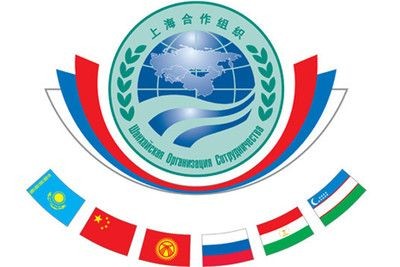LONDON (TCA) — All eyes of the world seem to be focused on Kazakhstan and its less known capital of Astana for once. The coincidence is the opening of the World Exhibition EXPO-2017 and a quite unique political summit of the Shanghai Cooperation Organization (SCO) which strikes attention by the absence of any western “leader” – no Trump, no May, no Merkel, no Macron here, and even Erdogan is staying home.
This time SCO summit was conducted with the presence of the high and mighty rulers of Russia, China, India, and Pakistan, as well as heads of state of all Central Asian republics except Turkmenistan, and those of Belarus and Armenia.
The absence of controversy and its protagonists made it easy for the regional leaders to display their consensus over the need to confront terrorism, intensify common economic development and attempts to solve regional conflicts through peaceful means. Well said, but how? By developing a new approach toward the settlement of various issues in order to cope with the increasing violence in Afghanistan and Kashmir, both located on Central Asia’s very doorstep, and existing conflict between different Central Asian members.
India’s and Pakistan’s entry
“Top leaders of the Shanghai Cooperation Organization (SCO) member countries said Friday that political and diplomatic means are the ‘only choice’ to settle regional conflicts,” China’s state news agency Xinhua reported at the end of the summit. “Speaking of the bloc’s first-time expansion, the heads of state said the decision to grant India and Pakistan SCO membership is historic, and will boost the organization’s development potential. They also agreed to enhance the SCO’s role as an efficient and comprehensive regional bloc, so as to promote multilateralism and a community of shared destiny for mankind.”
The formalization of India’s and Pakistan’s full membership, turning the Shanghai Six into Shanghai Eight, was most highlighted in the avalanche of news items during and following the summit. This will certainly not solv the existing problems since it is the regional antagonism which could be threatening the SCO’s clout in years to come.
Hegemony or allegiance?
To its Western detractors, the Shanghai Cooperation Organisation (SCO) is an “emergent anti-NATO coalition,” “an OPEC with bombs” and a military and economic alliance “to be reckoned with,” in the opinion of Dr Adil Rasheed, a senior geopolitical expert from India. According to the commentator, it is not NATO in its current engagements that is eager to look for possible frictions within the SCO, but the Kremlin. All this does not consider that Russia already has it internal problems and if the Kremlin looks for anything, it is not hegemony in eastern Asia but allegiances with as many other powers, big and small, as possible in order to allow itself to shift from the burdensome position of team leader to the more affordable one of team player.
It would be impossible for Russia to “lead” Eurasia in the same manner the USA keeps trying to play a similar role to the SCO domain’s west and east – and Vladimir Putin and his team know it all too well, which makes western war mongers’ arguments sound plainly hollow if not treacherous.
Political and economic order
It is here that the big dilemma presents itself to the east-Eurasian powers. Now, the SCO looks firmly in place, but after the mutual congratulations the question imposed itself: what to do with it? NATO’s difficulties and lack of proper results in Afghanistan has clearly demonstrated that a simple bang-bang policy is not the answer to the increasing and expanding terror spread by movements in the name of Islam.
So far, the organisation has not come up with a credible alternative though. To achieve effective cooperation in politics and many other areas and to reach security and stability with a new political and economic order is easier to say than to achieve. In plain words, this means: give everybody a peaceful, prosperous and comfortable life and the feeling that caring authorities guarantee all that – thereby giving everybody a feeling that he has something to lose. Dividing societies into haves and have-nots is seen as the very root of evil, namely revolt, terrorism and other acts of despair. A Marxist scenario in its purest appearance.
But what both “leaders” and sidelines seem to overlook is that the human character is not composed in this manner, that people, especially the young, are reluctant to accept a fully stipulated life, and look instead for thrills, not in movie theatres or on the Internet but in real life, even if it means hysteria, risks of death and destruction and anarchism. So far, no international organisation has come up with a satisfactory answer to that challenge. But now that the champagne bottles are empty, once more leaders tend to return home and find that the vinegar bottles are still full.

